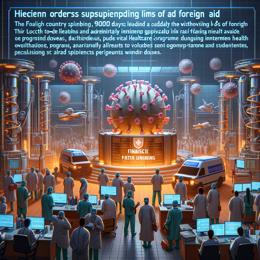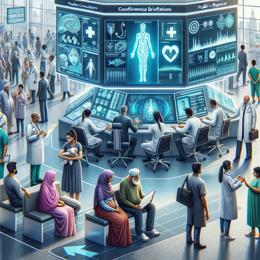Picture: for illustration purposes
Groundbreaking MitraClip Procedures Successfully Executed in South African Hospitals
The medical landscape in South Africa has advanced significantly as Tygerberg Hospital and Groote Schuur Hospital successfully executed the country's inaugural MitraClip implantation surgeries last week. Five patients were introduced to this minimally invasive treatment alternative, designed to significantly improve the quality of life for those suffering from mitral regurgitation (MR), a widespread heart valve condition. The procedure is particularly beneficial for patients who are deemed unsuitable for conventional open-heart surgeries.
Dr. Hellmuth Weich, a senior specialist at Tygerberg Hospital, was a key player in this revolutionary operation, which came to fruition through a coordinated effort of cardiologists and surgeons from both hospitals.
Recalling the historic event, Dr. Weich stated that the implementation of the MitraClip procedure followed years of intricate planning, careful preparation, and intensive training. Owing to the intricate complexity and cost, it is reserved for patients deemed unsuitable for standard operations due to specific valve anomalies.
On 27 September 2023, Max Köster, an 87-year-old patient from Durbanville, was the first individual in Tygerberg Hospital to undergo this groundbreaking operation. The next day, Phillip Isaacs, 71, from Athlone, followed suit at the Groote Schuur Hospital. Both patients reported significant improvements post-procedure, praising the proficient hospital staff for their exceptional care.
Dr. Jens Hitzeroth, a senior specialist at Groote Schuur Hospital, further highlighted the teamwork involved in the success of these procedures, expressing his pride in participating in this joint venture.
The MitraClip device allows a less invasive approach to treating MR, introduced through a leg vein, aiding the heart valve's sealing and substantially increasing blood flow. The procedure's merits include significantly reduced recovery times, offering elderly or high-risk MR patients a better quality of life.










